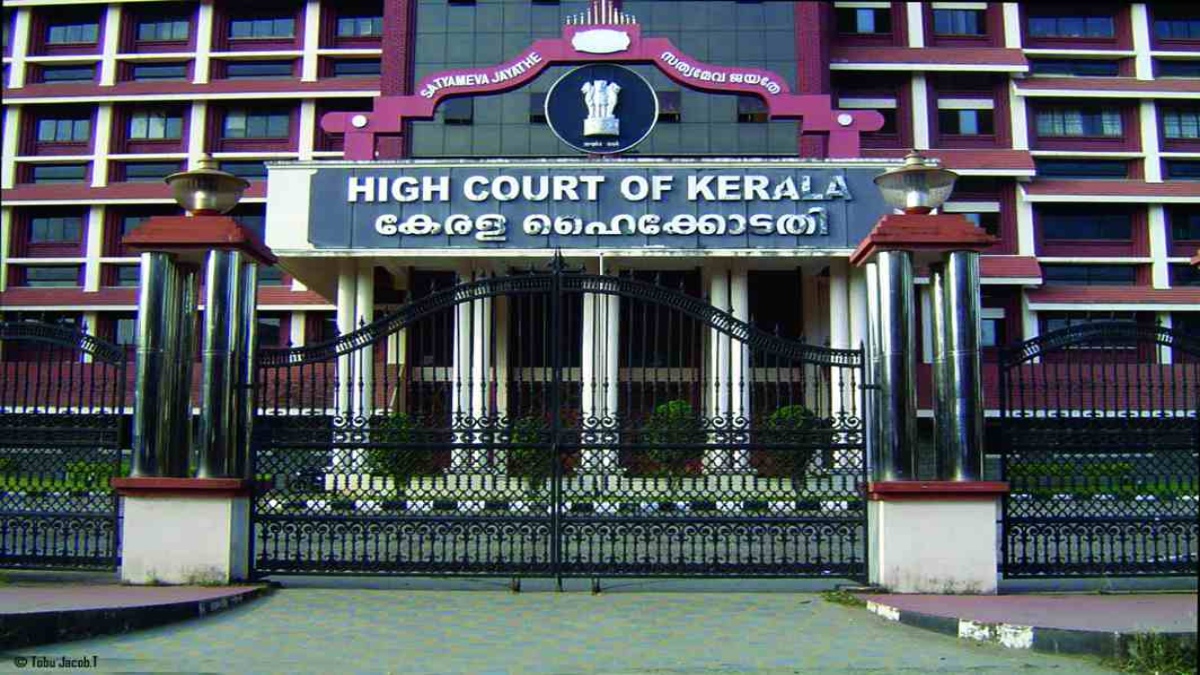Without mincing any words and without beating about the bush, the Kerala High Court in an extremely laudable, learned, landmark and latest judgment titled Nushath Koyamu v. Union of India & Ors. in WP(Crl.) No. 107, 108 and 109 of 2022 pronounced as recently as on June 3, 2022 has commendably, cogently, composedly and convincingly held that failure to supply the documents which were relied upon by the detaining authority for arriving at the subjective satisfaction to pass the detention order affects the rights of the detenus under Article 22(5) of the Constitution of India, particularly when they were specifically requested for by them. We thus see that the Division Bench of Justice AK Jayasankaran Nambiar and Justice Mohammed Nias C.P, therefore, very rightly, rationally and robustly quashed the detention order observing that the non-supply of the documents had vitally affected the right of the detenus under Article 22(5). It must also be mentioned here that the Court was adjudicating upon a plea seeking to quash the detention orders passed by the Joint Secretary of COFEPOSA against the petitioners herein in a gold smuggling case. They were granted bail by the Sessions Court before the detention order was issued.
To start with, this brief, brilliant, bold and balanced judgment authored by Justice Mohammed Nias CP for a Division Bench of the Kerala High Court comprising of himself and Justice AK Jayasankaran Nambiar sets the ball rolling by first and foremost putting forth in para 1 that, “Specific, confidential information received by the officers of the Directorate of Revenue Intelligence, Cochin Zonal Unit (hereinafter referred to as ‘DRI’) that a smuggling syndicate, in connivance with a G card holder of Customs Broker, Cochin Sea Port, was engaged in smuggling of gold from Dubai, in a concealed unaccompanied luggage imported through container Freight Station (CFS), Willington Island, Kochi. The specific information conveyed that the gang had recruited one Althaf Moosan Mukri for whom unaccompanied baggage was sent from Jabal Ali Port of UAE, booked in the name of the said Althaf Moosan Mukri. It was conveyed that it contained huge quantity of concealed gold and would be cleared on 20-4-2021, in the guise of genuine unaccompanied baggage containing household items. Accordingly, the intelligence officers mounted surveillance in and around the port Container Freight Station. While so, the said Althaf Moosal Mukri arrived at CFS at about 2 p.m. for clearing the baggage. He was intercepted and the unaccompanied baggage addressed to him was examined in the presence of Superintendent of Customs and two independent witnesses. The baggage declaration was signed by the proprietor of M/s. Mercantile and Marine Services which was the Clearing House Agency (CHA). The staff of the CHA, Mr. Biju v. Joy and two other representatives were present there. After identifying the baggage, the said Althaf was informed about the purpose of their visit and with his consent, items were checked. On a detailed examination, it was found that, huge quantity of gold was concealed in the compressor of a refrigerator, brought as an unaccompanied luggage. It contained 126 pieces of gold bars and one cut piece. A Gold Assayer was called who weighed it and found that, it was pure gold bars of 999 purity and it weighed 14763.300 gms. valued at market price of about Rs. 7.16 crores.”
To put things in perspective, the Division Bench then envisages in para 2 that, “Apart from the passenger, the statements of one Mohammed Ali, Biju V. Joy and Abdulla S.S. were taken on 20.04.2021. On 21.04.2021 yet another statement was recorded from Mohammed Ali. They were arrested on 21.04.2021 and the bail applications were moved on 23.04.2021, which were dismissed on 30.04.2021. The second set of bail applications filed was dismissed on 5.5.2021 and finally bail was granted by the Sessions Court by its order dated 11.5.2021 as the DRI did not oppose the bail application on the ground of Covid 19 pandemic and thus bail was granted. Biju V. Joy alleges that he has retracted the statement on 29.5.2021, whereas, Mohammed Ali is said to have retracted his statement on 7.6.2021 and Abdulla.S.S on 8.6.2021. The DRI has issued a rebuttal letter to these persons on 15.6.2021. Further statements were also recorded and detention order, Ext.P1 was passed on 24.8.2021. Pursuant to the detention order passed on 24.08.2021, the detenus were detained at the Central Prison, Poojappura, Thiruvananthapuram on 1.9.2021. WP(Crl) No.107/2022 is filed Mohammed Ali, WP(Crl.)No.108/2022 is filed by Abdulla S.S. and WP(Crl.)No.109/2022 is filed by Biju V.Joy.”
Needless to say, the Division Bench then states in para 3 that, “The prejudicial activities alleged against the detenus and the contentions against the orders of detention are almost similar and hence all these petitions are heard together.”
As we see, the Division Bench then notes in para 11 that, “The medical examination of all the accused were conducted and produced before the magistrate court. The detenus Abdulla.S.S and Biju V Joy were tested for Covid 19 and as per the then existing Covid guidelines, all the accused were produced before the magistrate court through video conferencing adhering to the court protocol, and as directed by the court they were admitted to the Covid first line treatment centres and Mohammed Ali was remanded to the Sub Jail, Aluva. We do not find anything wrong in the procedure adopted when they were arrested or while producing the detenus before the jurisdictional magistrate. Appearance through video conferencing / through a whatsapp call, under the circumstances has to be taken as appearance before the magistrate and we do not think there is any illegality committed. The contentions to the contra are rejected as at any rate they are irrelevant to the present proceedings.”
Be it noted, the Division Bench then clearly states in para 12 that, “With respect to the contentions that at no stage of bail the sponsoring authority had a contention that the detenus would further indulge in act of smuggling or that they had to be detained, cannot be accepted at all. The role of the sponsoring authority and the detaining authority are distinct and different. After the proposal for detention placed before the detaining authority, the Central Screening Committee consisting of senior officers from the different organisations will screen the entire proposal and make the recommendation and only after this stage the proposal goes to the detaining authority. Thus distinct, different and independent authorities are to examine the materials and it is thereafter that the detaining authority has to independently arrive at the subjective satisfaction to decide whether to detain or not. The detaining authority has also to satisfy itself about the propensity of the proposed detenus to indulge in prejudicial activities in future. Viewed in this background the contention on behalf of the detenus, that at the stage of bail, the sponsoring authority did not contend anywhere that the accused would indulge in prejudicial activities in future and therefore the detention orders are bad, cannot be accepted at all. The power of preventive detention is qualitatively different from punitive detention. The power of preventive detention is a precautionary power exercised in reasonable anticipation. It may or may not relate to an offence. It is not a parallel proceeding. It does not overlap with prosecution even if it relies on certain facts for which prosecution may be launched or to be launched. An order of preventive detention, may be made before or during prosecution. An order of preventive detention may be made with or without prosecution and in anticipation or after discharge or even acquittal. The pendency of prosecution is no bar to an order of preventive detention. An order of preventive detention is also not a bar to prosecution.”
It deserves mentioning that the Bench mentions in para 15 that, “The learned counsel for the petitioner submits that in W.P. (Crl) No. 107 of 2022, the detenue had filed Ext. P12 request for supply of the documents mentioned therein, particularly, a screen shot taken from the detenus phone which was relied upon by the detaining authority. It is mentioned in Ext. P12 that there were at least six voice messages visible on the screen shot which were relied on and those messages appear to be of 19th April 2021, a day before the detenus in this case were taken into custody by the DRI. It is the contention that from the screen shot, the contents of the whatsapp chat cannot be understood and unless the chats in electronic form is provided, an effective representation cannot be made. Thus, the whatsapp chat in electronic form which was to be given on a pen drive or such other media to facilitate them to hear them and understand the content and offer the explanation has been deprived offending the right under Article 22(5) of the Constitution of India.”
While continuing in a similar vein, the Bench then notes in para 16 that, “Similar request is made as Ext. P12 in W.P.(Crl). 108 of 2022. In W.P( Crl).109 of 2022, Ext.P12 has been made which relates to the documents pertaining to the transactions of the smuggled gold recorded from the mobile phone of Abdulla S.S. was sought for, since it was alleged that a “Syndicate” was formed, the contents of the mobile phones of, whatsapp and the other media of the phones etc. is very much necessary for making an effective representation seeking release. It is the contention of the learned counsel for the petitioners that these details sought for were absolutely crucial as the same has been relied upon by the detaining authority for arriving at the subjective satisfaction to detain and resultantly the non-furnishing of which renders the detention order bad. The learned counsel for the respondents on the other hand contends that though there has been narration in the detention order about the screen shots/whatsapp, they had not been relied upon and hence there is no duty on them to give copies in electronic form to the detenus.”
Quite rationally, the Bench then aptly observes in para 17 that, “On a consideration of the rival submission on this aspect, we notice that there has been reliance made in the detention order regarding the documents mentioned above which might have forced the detaining authority to reach the conclusion about the previous smuggling activities and which necessitated the present order of detention. Inspite of a specific request, as seen from Ext. P12 in the above cases, we find copies were not given. In as much as the contents of the above being relied upon and they have not been given despite asking for them, we feel there has been infraction of the right of the detenus to make an effective representation seeking release.”
It is worth noting that the Division Bench then holds in para 18 that, “The learned counsel for the petitioner is right in stating that the detaining authority ought to have furnished the said materials as their right to make an effective representation has been impaired. It is relevant to note in the decision of the Supreme Court in Atma Ram Vaidya v. State of Bombay [AIR 1951 SC 157]. The Hon’ble Supreme Court held that :
Para 10. “To put, it in other words, the detaining authority has made its decision and passed its order. The detained person is then given an opportunity to urge his objections which in cases of preventive detention comes always at a later stage. The grounds may have been considered sufficient by the Government to pass its judgment. But to enable the detained person to make his representation against the order, further details may be furnished to him. In our opinion, this appears to be the true measure of the procedural rights of the detained person under Article 22 (5).”
Para 12 . “The conferment of the right to make a representation necessarily carries with it the obligation on the part of the detaining authority to furnish the grounds, i.e., materials on which the detention order was made. In our opinion, it is therefore clear that while there is a connection between the obligation on the part of the detaining authority to furnish grounds and the right given to the detained person to have an earliest opportunity to make the representation, the test to be applied in respect of the contents of the grounds for the two purposes is quite different. As already pointed out, for the first, the test is whether it is sufficient to satisfy the authority. For the second, the test is, whether it is sufficient to enable the detained person to make the representation at the earliest opportunity”.
Para 13 “But when grounds which have a rational connection with the ends mentioned in section a of the Act are supplied, the first condition is satisfied. If the grounds are not sufficient to enable the detenue to make a representation, the detenue can rely on his second right and if he likes may ask for particulars which will enable him to make the representation. On an infringement of either of these two rights the detained person has a right to approach the court and complain that there has been an infringement of his fundamental right and even if the infringement of the second part of the right under Article 22 (5) is established he is bound to be released by the court”.”
As a corollary, the Division Bench then most commendably mandates in para 19 that, “In the light of the above, we cannot accept the contention of the learned counsel for the respondents that there was no duty to supply the documents mentioned above to the detenus. The decisions relied on by the learned counsel for the respondent for the proposition that the documents sought for in the instant cases need not be granted cannot be accepted as the same are rendered on different sets of facts. In as much as the documents sought has been relied upon in the detention orders, the same ought to have been furnished to the detenus when they requested for the same. The learned counsel for the petitioners is also right in relying on the following judgments for canvassing the same position that the relevant electronic info to be provided in the same format:
1. 2016 (3) KHC – Reshmi v. Union of India
2. 2019 KHC 914 – Hajira N.K. v. Union of India
3. 2020 KHC 167 – Beevikunju v. Union of India
4. 2021 KHC 303 – Waheeda Ashraf v. Union of India
In the light of the discussion above, we are convinced that the non-supply has vitally affected the right of the detenus under Article 22(5) of the Constitution of India. We, accordingly, hold that the detention order is bad for the non-supply of these documents sought for in Ext. P12.”
In addition, the Division Bench then further hastens to add in para 21 that, “The learned counsel for the petitioner also argues that the confirmation of the detention order by the Central Government following the opinion of the Advisory Board is also completely illegal in as much as the reference of the case of the detenus was to an Advisory Board consisting of a Chairman and two members addressed by name as disclosed from Ext. P9 but the reference was answered by an Advisory Board consisting of judges different from those notified in Ext.P9. Thus, the learned counsel argues that the constitution of the Board was wrong and that it must be taken that the Advisory Board to which the case of the detenus were referred did not answer such reference by rendering an opinion under Section 8 (c) and as such it is the violation of the constitutional mandate under Article 22(4) as well as violation of statutory mandate under Section 8 (c) of the COFEPOSA Act rendering the confirmation order under Section 8 (f), null and void.”
Finally and far most significantly, the Division Bench then concludes by holding briefly in para 22 that, “We are afraid that the said contention cannot be accepted. The requirement under Section 8 of the COFEPOSA Act in the background of the Constitutional provision is for a reference to an Advisory Board duly constituted and it is not the petitioner’s case and the board which answered the reference in the instant case had any member who was not qualified or competent to hear the reference. The constitution of the Board was changed owing to the retirement of the Hon’ble Judges after issuance of Ext. P9. It is true that the retired Judges also could be members of the Advisory Board but extra care was given to see that the serving Judges were included in the Advisory Board. It has to be presumed, when an Advisory Board is constituted, comprising of high constitutional functionaries, that the case of the detenus will be considered with objectivity, fairness and competence, reassuring the Constitutional and statutory safeguards while expressing their opinion on the sufficiency of the cause of detention. In such circumstances, the question of detenus being put to any prejudice much less any actual prejudice does not normally arise. The interest of the detenus were sufficiently taken care of both in the constitution of the Board and while answering the reference. We find no error, much less, any illegality in the constitution of the Board or while it answered the reference and contention on that count made on behalf of the detenu is accordingly rejected. In view of our finding on the issue of non-supply, Ext.P1 orders of detention are quashed and the detenus are forthwith set at liberty provided they are not wanted in connection with any other case.”
In conclusion, I am definitely entirely on the same page as the Division Bench of the Kerala High Court which has made it absolutely clear in this notable judgment that non-supply of documents relied upon in detention order affects detenus’ rights under Article 22(5) of the Constitution. It was also made clear by the Court that this is moreso particularly when they are specifically requested for by the detenus. There can be just no denying or disputing it!













